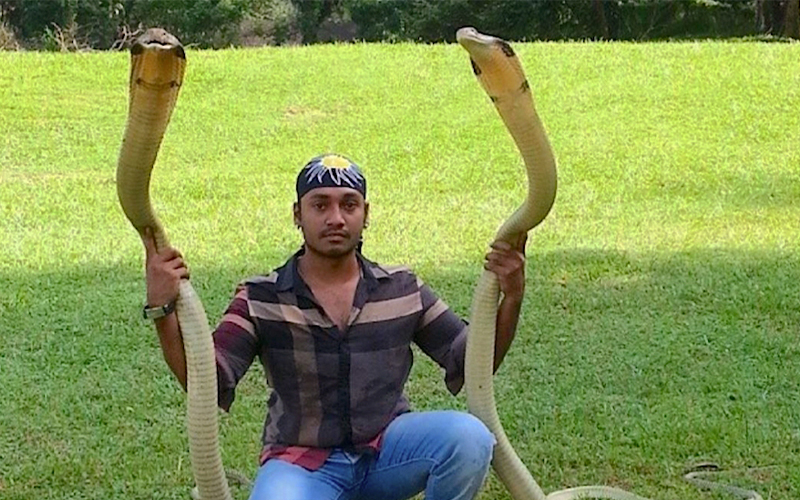
TAIPING: When Malaysian “Snake King’” Ali Khan died from a cobra bite in 2006, his son Amjad Khan was devastated, not knowing how he would carry on the family trade that has spanned four generations.
Ali’s passing happened just a few days after Amjad had turned 20 and just completed a solo snake show, which included performing before then prime minister Abdullah Badawi.
“It was a blow to our family as he was only 48,” Amjad told FMT Lifestyle when met at Taiping Zoo recently.
“He was the one who had taken our snake show abroad, after my grandfather Dastagir Hussein and great-grandfather Maulana Khan made their stunts with their pet snakes famous in the country.”
Amjad, now 37, did not want to talk about the circumstances that led to the incident in which one of their pet snakes had killed his father.
But he nevertheless admitted the episode had shaken his confidence, and he found himself suddenly fearful of the reptiles.
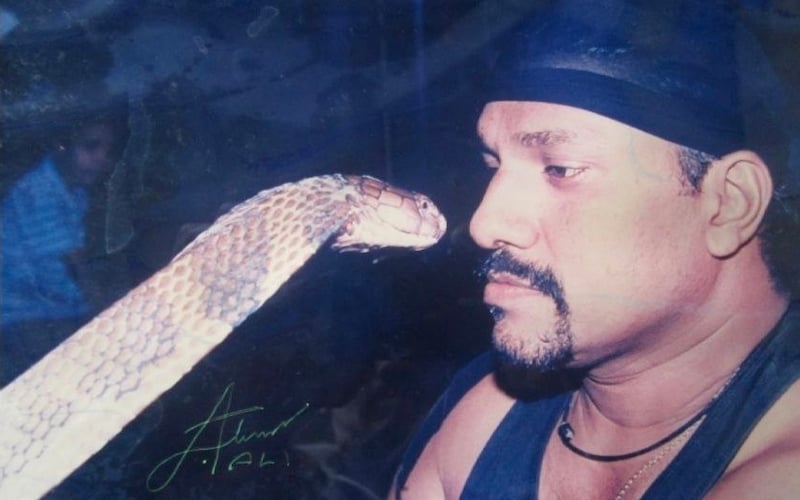
Amjad had to be cajoled by his mother Mau Boh Bee and other relatives, who told him the family tradition that began in 1930 would end if he did not take on the mantle.
“She said my father would not rest in peace if I did not continue. I finally gave in as I knew my family had created local history with their daring acts, earning them the moniker of ‘Snake Kings’.”
Amjad revealed that, in the past, the presence of his father or the thought of him being in the vicinity during Amjad’s performances had kept him going.
As a child, his dad would build his confidence and get rid of Amjad’s fear by letting him play with the snakes on stage while Ali wooed crowds with stunts like kissing cobras.
With these memories in mind, Amjad strove to overcome his fear and keep the family flag flying, despite his father’s success being a hard act to follow.
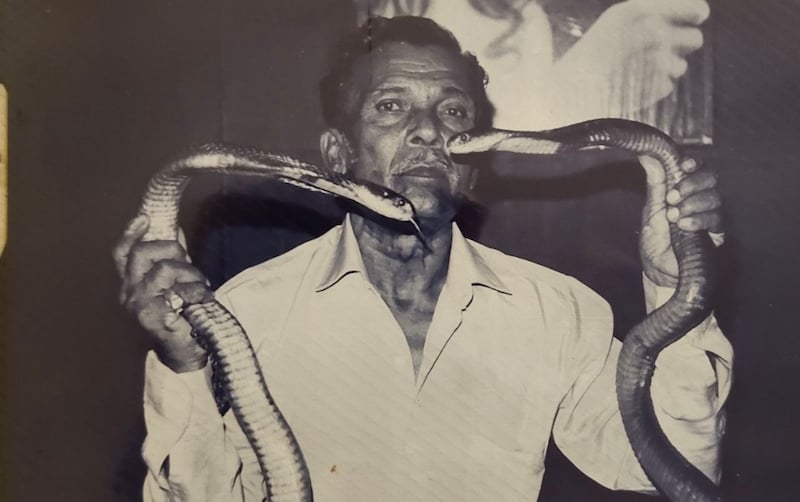
Changing times, shifting focus
Amjad further shared that performing with poisonous snakes has become more challenging over the last decade or so owing to protests from animal-rights activists.
“At the same time, the wildlife department advised us not to handle the snakes for my safety and that of the public,” he said.
He subsequently agreed and decided to change the focus of their shows. From spectacle and stunts, Amjad has downscaled his performances to teach Malaysians who are curious but uninformed about the reptiles, with some light entertainment.
He is grateful to the Taiping municipal council and zoo director Dr Muhamad Ridhwan Affendi who helped him establish this new direction, including setting up a booth to display the snakes as he explains to visitors all they need to know about them.
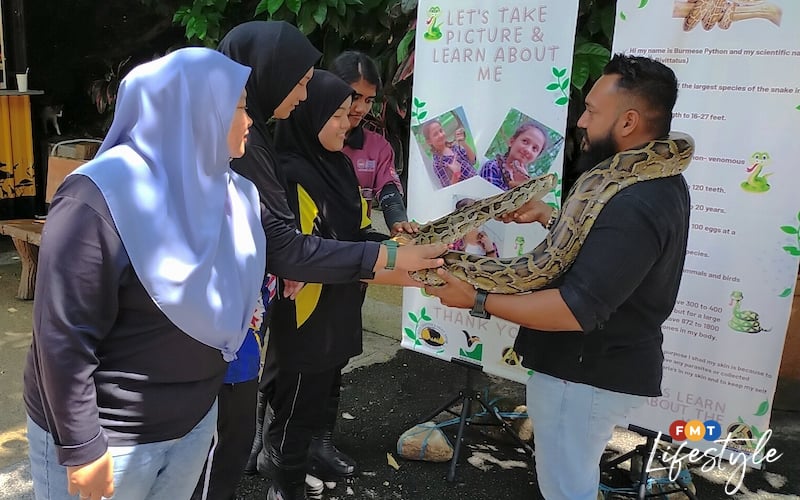
Amjad pointed out that most Malaysians are ignorant of the various species of snakes, which makes treatment harder in the event that they are bitten by one.
He also talks about the procedures homeowners should follow should a snake enter their home, which includes closing all doors and blocking all exit points to stop it from escaping.
“You should then contact the fire services, wildlife department, or civil defence corps, who are trained to catch them. We explain this to the visitors besides telling them how to handle snake bites,” Amjad said.
Finally, visitors at the zoo are allowed to handle the snakes under supervision and take photos so they will overcome their fear. “The response has been good from the public,” he added.
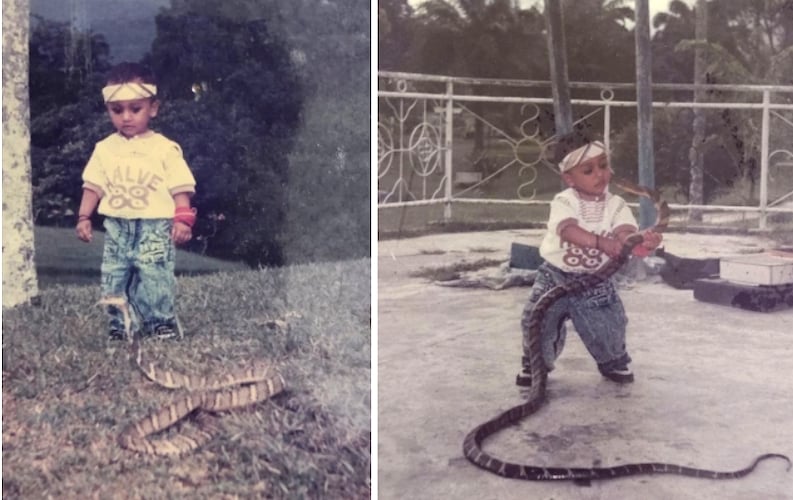
The last generation?
As for those breathtaking performances made famous by Amjad’s father and forefathers, it is a dying trade, he said, as these days he can only hold them with permission from the relevant authorities.
Times have also changed, and the era of snake-handling being a novelty – when his father would bring shows abroad upon request – are gone.
As such, Amjad is not sure if his business will be taken over by one of his two sons, 17-year-old Arissh and 10-year-old Aqish. He also has a 12-year-old daughter, Arsshika.
Of the three, Amjad believes Aqish has the best shot of carrying on the trade, even though he has forbidden his younger boy from being with the snakes unsupervised, despite having done so himself as a child.

“Aqish has asked me why I don’t allow him to be alone with them. I would prefer for him to become a veterinarian one day, so that he is close to animals and be there for the snake population when needed,” Amjad said in reflection.
“The industry has evolved and so must we. I will see how it goes.” - FMT



No comments:
Post a Comment
Note: Only a member of this blog may post a comment.